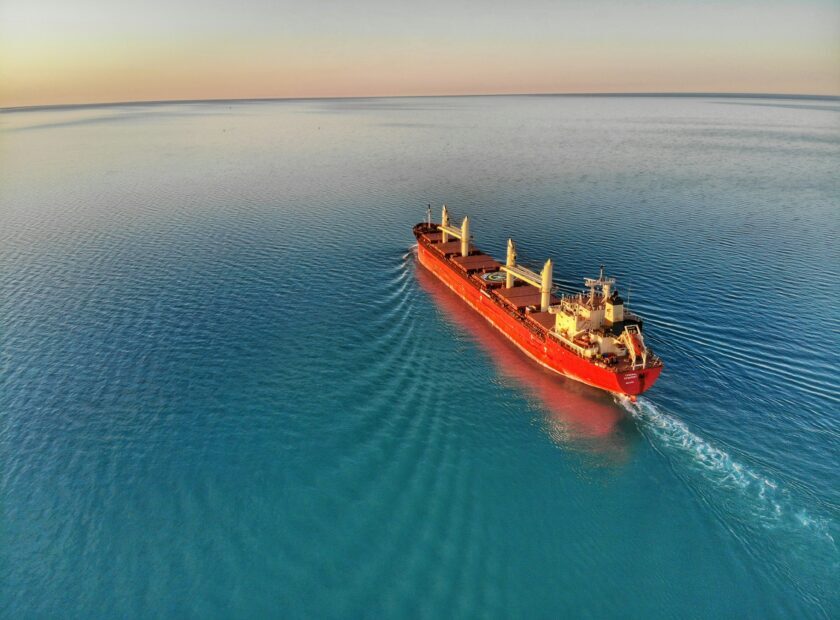
NAVIGATING THE WATERS OF SHIP FINANCE: REQUIREMENTS AND CONSIDERATIONS
Executive Summary
The maritime industry remains one of the most capital-intensive sectors globally, with vessel investments often reaching hundreds of millions of dollars. Ship finance presents unique challenges due to the confluence of maritime law, international conventions, and diverse national regulatory frameworks. This summary examines the key requirements and considerations for ship finance with particular focus on the Nigerian context while drawing comparative insights from other common law jurisdictions.
1. ELIGIBILITY CRITERIA FOR SHIP FINANCE
Financial Standing and Creditworthiness
Financial robustness constitutes a fundamental eligibility criterion for ship finance. Maritime lenders typically require substantial equity contributions ranging from 20-40% of vessel value.[^1] In Worldwide Shipping Ltd v. Ecobank Plc,[^2] the Federal High Court established that “a shipowner’s historical financial performance constitutes a material consideration for financial institutions.” This aligns with Section 12(1)(a) of the Banks and Other Financial Institutions Act 2020, mandating that credit be extended only to borrowers demonstrating repayment capacity.
Operational Track Record and Industry Experience
Maritime financiers place significant emphasis on operational expertise and industry experience. The Nigerian Court of Appeal recognized in The “Aokpe”[^3] that “specialized knowledge of shipping operations constitutes an intangible yet valuable asset that enhances a borrower’s prospect of securing maritime finance.” The Nigerian Ship Registration Act 2004 implicitly acknowledges this by establishing criteria for vessel registration that indirectly impact financing eligibility.
Corporate Structure and Governance
The corporate architecture through which shipping operations are conducted substantially influences financing eligibility. Special purpose vehicles (SPVs) typically facilitate asset isolation and risk containment. The Companies and Allied Matters Act 2020 accommodates such structures, enabling the establishment of single-ship companies as limited liability entities. In Customized Estates Ltd v. Guaranty Trust Bank Plc,[^4] the Nigerian Supreme Court underscored that “corporate governance deficiencies may constitute material impediments to accessing specialized financing notwithstanding financial capacity.”
2. FINANCIAL DOCUMENTATION IN SHIP FINANCE
Financial Statements and Projections
Comprehensive financial disclosure represents a non-negotiable prerequisite for ship finance. Financial projections spanning the anticipated loan tenor constitute critical documentation for ship finance applications. In Peak Shipping Ltd v. Skye Bank Plc,[^5] the Federal High Court emphasized that “maritime financing decisions necessarily entail forward-looking assessment based on credible financial projections that account for industry cyclicality.”
Vessel Valuation Reports
Independent valuation reports from recognized marine surveyors are indispensable for ship finance transactions. The Supreme Court in NNSL v. Panalpina World Transport (Nigeria) Ltd[^6] held that “professional valuation of maritime assets constitutes prima facie evidence of their market value in financing and commercial disputes.” The Admiralty Jurisdiction Procedure Rules 2023 establish procedural mechanisms for vessel valuation in admiralty proceedings, including mortgage enforcement actions.
Insurance Documentation
Comprehensive insurance documentation, comprising hull and machinery, protection and indemnity, and war risk coverage, constitutes a fundamental precondition for ship financing. In Global Maritime Investments v. Zenith Bank Plc,[^7] the Federal High Court upheld a lender’s entitlement to reject ship finance applications based on inadequate assignment of insurance proceeds.
3. COLLATERAL REQUIREMENTS IN SHIP FINANCE
Ship Mortgages as Primary Security
The ship mortgage serves as the quintessential security instrument in maritime finance. Section 54 of the Merchant Shipping Act 2007 provides that “a registered mortgage of a ship or share shall have priority over all claims against the ship or share, except for maritime liens and possessory liens for repairs.” In Royal Exchange Assurance v. MV “Prosperity”,[^8] the Federal High Court affirmed that “properly registered ship mortgages constitute robust security capable of enforcement against the vessel irrespective of changes in ownership.”
Corporate and Personal Guarantees
Supplementary security arrangements, particularly corporate and personal guarantees, frequently complement ship mortgages. In Ecobank v. Intercontinental Shipping Line,[^9] the Court of Appeal held that “the commercial practice of requiring guarantees in ship finance reflects the legitimate concern of lenders regarding the inherent volatility of maritime assets’ values.” Personal guarantees from beneficial owners often feature in transactions involving single-ship companies, as evidenced in Access Bank Plc v. Capital Maritime Ltd.[^10]
Assignment of Earnings and Insurance
Ship finance typically involves the assignment of intangible rights, particularly vessel earnings and insurance proceeds. The Secured Transactions in Movable Assets Act 2017 provides statutory recognition for such assignments. In Standard Chartered Bank v. Western Bulk Carriers,[^11] the Federal High Court upheld the lender’s entitlement to intercept freight payments based on a properly executed assignment of earnings.
4. REGULATORY COMPLIANCE IN SHIP FINANCE
Banking Regulations and Prudential Guidelines
Banking regulations substantially influence ship finance availability and terms. The Banks and Other Financial Institutions Act 2020 establishes the regulatory framework for financial institutions engaged in ship financing, with Section 65 empowering the Central Bank of Nigeria to issue prudential guidelines affecting maritime lending. In Union Bank v. Oceanic Offshore Services Ltd,[^12] the Court of Appeal acknowledged the tension between maritime financing requirements and banking stability considerations.
Foreign Exchange Regulations
The international character of shipping necessitates navigation of foreign exchange regulations. The Foreign Exchange (Monitoring and Miscellaneous Provisions) Act 1995 requires certain transactions to receive Central Bank approval, potentially adding a regulatory layer to ship financing arrangements. In Stanbic IBTC Bank v. Blue Atlantic Shipping,[^13] the Federal High Court adopted a pragmatic approach to foreign exchange compliance in cross-border ship financing arrangements.
Maritime Administration Requirements
Specialized maritime regulations administered by the Nigerian Maritime Administration and Safety Agency (NIMASA) add another compliance dimension to ship finance. The Coastal and Inland Shipping (Cabotage) Act 2003 introduces additional regulatory considerations for vessels operating in Nigerian waters. In Noble Drilling Services v. NIMASA,[^14] the Federal High Court held that “Cabotage compliance constitutes a material consideration for vessel financing given the enforcement powers vested in maritime authorities.”
5. RISK ASSESSMENT IN SHIP FINANCE
Market Risk Evaluation
Market volatility represents a primary risk consideration in ship finance. In Consolidated Shipping Line v. First Bank of Nigeria,[^15] the Federal High Court noted that “prudent ship financing necessitates sophisticated assessment of market cycles beyond conventional credit analysis.” Empirical studies have demonstrated statistically significant relationships between freight market indicators and ship finance terms offered by Nigerian financial institutions.
Regulatory and Political Risk Analysis
Regulatory uncertainty and political instability introduce additional risk dimensions to ship finance. In The “Mirabelle”,[^16] the Federal High Court acknowledged that “regulatory vacillations adversely impact maritime asset valuations and consequently the security margins required by prudent financiers.” Political risk insurance has emerged as a risk mitigation tool for ship finance in jurisdictions with elevated political risk profiles.
Operational and Technical Risk Considerations
Vessel condition, operational efficiency, and technical specifications materially influence risk profiles in ship finance. In The “Sea Eagle”,[^17] the Federal High Court held that “material non-compliance with statutory seaworthiness requirements may constitute an event of default under ship financing arrangements.” Environmental compliance has gained increasing prominence in maritime risk assessment, with substantial penalties possible for marine pollution violations.
CONCLUSION
Ship finance presents distinctive challenges shaped by the unique characteristics of maritime assets, the international nature of shipping operations, and the complex interplay of domestic and international legal frameworks. Recent legal developments in Nigeria, including the Secured Transactions in Movable Assets Act 2017 and the Admiralty Jurisdiction Procedure Rules 2023, enhance the legal infrastructure for ship finance. However, challenges persist regarding foreign exchange availability, regulatory consistency, and specialized maritime financial products. As Nigeria positions itself as a maritime hub for West Africa, developing sophisticated ship finance capabilities stands as an imperative for realizing the nation’s maritime potential.
[^1]: Martin Stopford, Maritime Economics (3rd edn, Routledge 2009) 283. [^2]: (2018) LPELR-46391(CA). [^3]: (2015) LPELR-40566(CA). [^4]: (2017) LPELR-42112(SC). [^5]: Suit No. FHC/L/CS/1652/2016 (unreported). [^6]: (1988) LPELR-2041(SC). [^7]: Suit No. FHC/L/CS/1382/2018 (unreported). [^8]: (1990) LPELR-25617(CA). [^9]: (2016) LPELR-40827(CA). [^10]: Suit No. FHC/L/CS/1254/2017 (unreported). [^11]: Suit No. FHC/L/CS/231/2015 (unreported). [^12]: (2019) LPELR-48675(CA). [^13]: Suit No. FHC/L/CS/1382/2017 (unreported). [^14]: Suit No. FHC/L/CS/715/2014 (unreported). [^15]: Suit No. FHC/L/CS/1705/2018 (unreported). [^16]: Suit No. FHC/L/CS/978/2016 (unreported). [^17]: Suit No. FHC/L/CS/1520/2019 (unreported).




